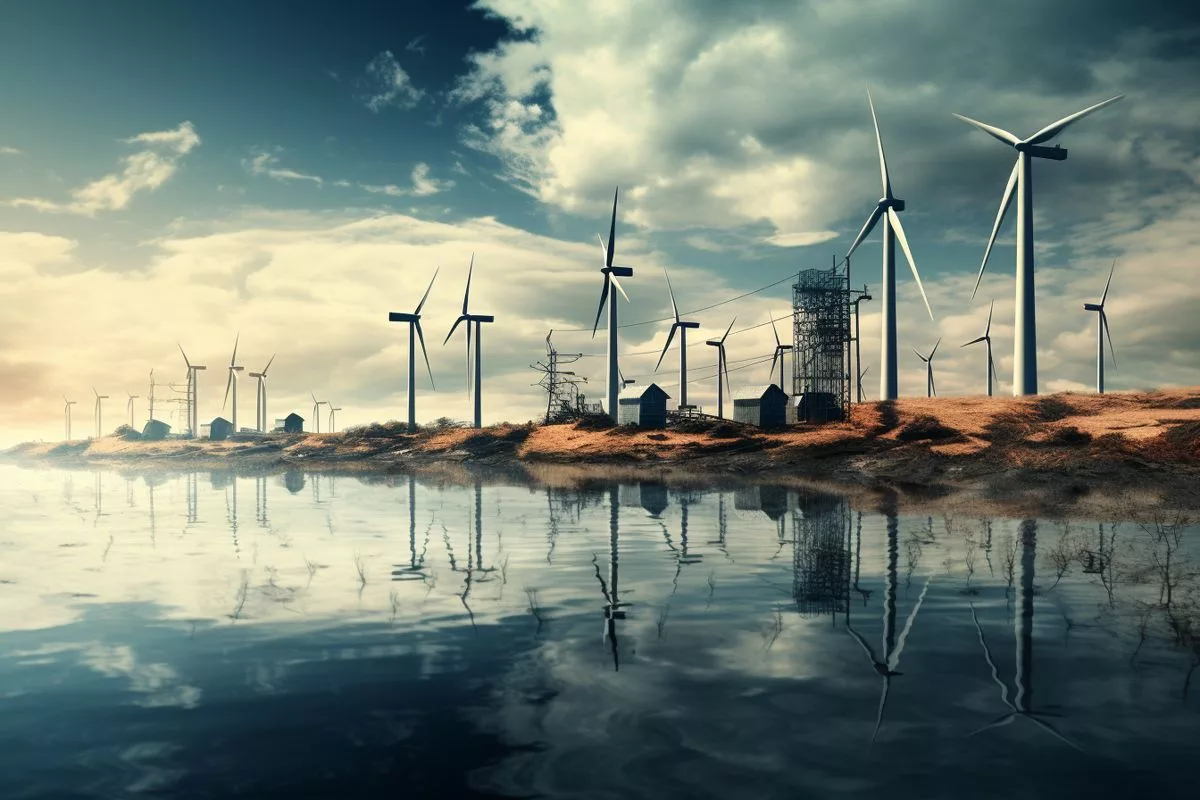South Africa is making strides towards a more sustainable and self-reliant energy landscape with the Battery Energy Storage IPP Procurement Programme (BESIPPPP). Four top contenders have been appointed to establish projects utilizing renewable energy sources that will contribute 513 MW to the national grid and generate jobs and foster economic development. The programme is part of South Africa’s efforts to shift towards a more sustainable future and secure its energy supply. With further advancements in the pipeline, South Africa is anticipating a bright future for its energy landscape.
What is South Africa’s Battery Energy Storage IPP Procurement Programme (BESIPPPP)?
South Africa’s BESIPPPP is a pioneering initiative aimed at enhancing the country’s energy security and reducing its carbon emissions. Four top contenders have been appointed to establish projects expected to contribute 513 MW to the national grid, utilizing renewable energy sources. The projects are also projected to generate jobs and foster economic development. The programme is part of South Africa’s efforts to shift towards a more sustainable and self-reliant energy landscape.
The Exciting Beginning of a New Energy Epoch
South Africa, a nation endowed with vast energy potential and mineral wealth, is embarking on an electrifying quest to safeguard its energy future. The spotlight has been cast on Mr. Gwede Mantashe, the respected Minister of Mineral Resources and Energy. Recently, he unveiled the appointment of four top contenders in the groundbreaking Battery Energy Storage Independent Power Procurement Programme (BESIPPPP).
Mantashe’s announcement was sprinkled with an air of positivity and determination, underscoring South Africa’s promise to bolster its energy security. Through the BESIPPPP, green signals have been given to four projects, expected to contribute a significant 513 megawatts (MW) to the country’s national grid. These ventures are set to be established at five designated sites, each housing a single top contender.
The bold initiatives, known as Oasis Aggeneis, Mogobe BESS, Oasis Mookodi, and Oasis Nieuwehoop, emerged victorious from a stringent proposal evaluation process, initiated in March 2023. Each endeavor is expected to set a benchmark, mirroring South Africa’s unwavering dedication to utilizing renewable energy and minimizing its carbon emissions.
Unique Characteristics and Economical Developments
The BESIPPPP stands out with its mandate for every project to offer Capacity, Energy and Ancillary Services. This three-fold strategy is designed to maximize resource utilization, assuring a stable and dependable electricity supply for the nation.
Regarding economic progress, the top contenders have accepted challenging commitments. In spite of no obligatory requirement in the initial round of BESIPPPP, these ventures plan to generate a significant 992 jobs for South African nationals.
Additionally, these projects are projected to channel over R3.2 billion into local content and more than R4.4 billion into preferential procurement from BBBEE, black enterprises, QSEs, and ESEs. They are also planning considerable investments in enterprise development initiatives throughout the lifespan of the projects.
Additional Projects and Future Expectations
Alongside the BESIPPPP, Mantashe unveiled the signing of a contract with an extra contender under the Risk Mitigation IPP Procurement Programme (RMIPPPP). The Mulilo Total Hydra Storage Project, with a total capacity of 75MW, suggests a hybrid Solar PV and Battery Storage technological solution. This project is predicted to reach Commercial Close by mid-December 2023 and kick-start the construction phase in early 2024.
With its introduction, the RMIPPPP is projected to add a remarkable 428MW of dispatchable capacity to the national grid. The first two out of the three RMIPPPP projects, Scatec Kenhardt 1, 2 and 3 with a combined capacity of 150MW, have already commenced commercial operation, while the third project is predicted to follow suit in early December 2023.
The department is currently making significant progress with several bid windows initiated under the IRP2019 determinations. Roughly 1384 MW of new generation capacity has already been secured, with projects either under construction or already functional.
The Bright Future of South Africa’s Energy Landscape
These advancements not only contribute significantly to South Africa’s energy capacity but also mark an important milestone in the country’s shift towards a more sustainable future. As South Africa grapples with the difficulties of grid capacity and project shutdowns, these initiatives light up the way forward, heralding a new era of energy self-reliance and resilience.
As South Africa eagerly anticipates further announcements about the launch of the next BESIPPPP bid window and the procurement of extra generation capacity under Bid Window 7 of the REIPPPP, Gas-to-Power, and Battery Storage, optimism is high. The nation is holding its breath, anxiously anticipating the influence these projects will have on South Africa’s energy scenario, its economy, and its populace.
1. What is South Africa’s Battery Energy Storage IPP Procurement Programme (BESIPPPP)?
South Africa’s BESIPPPP is a pioneering initiative aimed at enhancing the country’s energy security and reducing its carbon emissions. Four top contenders have been appointed to establish projects expected to contribute 513 MW to the national grid, utilizing renewable energy sources. The projects are also projected to generate jobs and foster economic development. The programme is part of South Africa’s efforts to shift towards a more sustainable and self-reliant energy landscape.
2. What are the unique characteristics of the BESIPPPP?
The BESIPPPP stands out with its mandate for every project to offer Capacity, Energy, and Ancillary Services. This three-fold strategy is designed to maximize resource utilization, assuring a stable and dependable electricity supply for the nation.
3. How many jobs are expected to be generated from the BESIPPPP projects?
The top contenders have committed to generating a significant 992 jobs for South African nationals, in addition to channeling over R3.2 billion into local content and more than R4.4 billion into preferential procurement from BBBEE, black enterprises, QSEs, and ESEs.
4. What other projects are in progress for South Africa’s energy landscape?
Alongside the BESIPPPP, the Risk Mitigation IPP Procurement Programme (RMIPPPP) has signed a contract with the Mulilo Total Hydra Storage Project, with a total capacity of 75MW, suggesting a hybrid Solar PV and Battery Storage technological solution. This project is predicted to reach Commercial Close by mid-December 2023 and kick-start the construction phase in early 2024. The department is also making significant progress with several bid windows initiated under the IRP2019 determinations, securing roughly 1384 MW of new generation capacity.
5. What is the expected impact of these projects on South Africa’s energy landscape?
These advancements not only contribute significantly to South Africa’s energy capacity but also mark an important milestone in the country’s shift towards a more sustainable future. These initiatives light up the way forward, heralding a new era of energy self-reliance and resilience.
6. What is the future expectation for South Africa’s energy landscape?
As South Africa eagerly anticipates further announcements about the launch of the next BESIPPPP bid window and the procurement of extra generation capacity under Bid Window 7 of the REIPPPP, Gas-to-Power, and Battery Storage, optimism is high. The nation is holding its breath, anxiously anticipating the influence these projects will have on South Africa’s energy scenario, its economy, and its populace.








